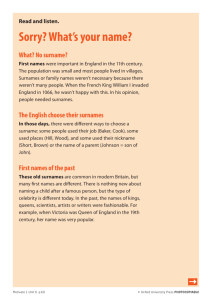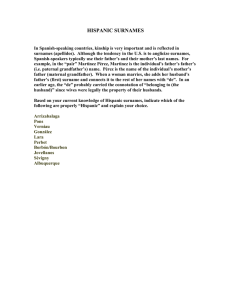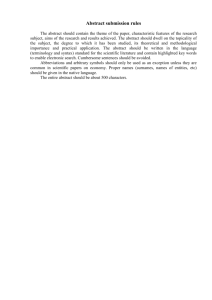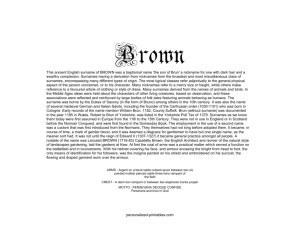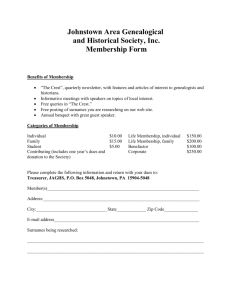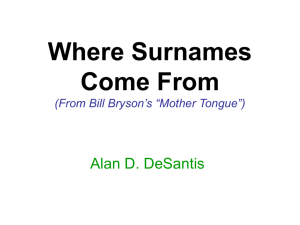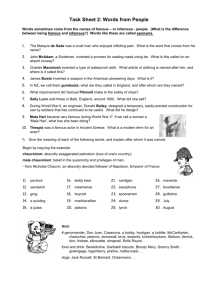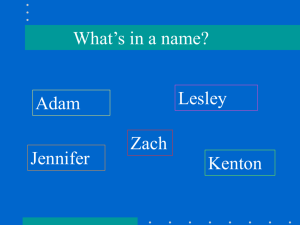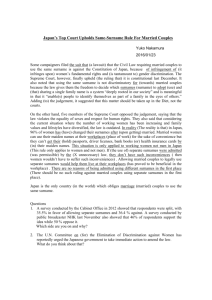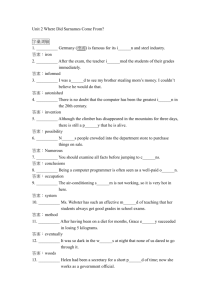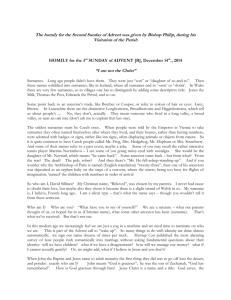How Surnames Changed - Online Family Network
advertisement
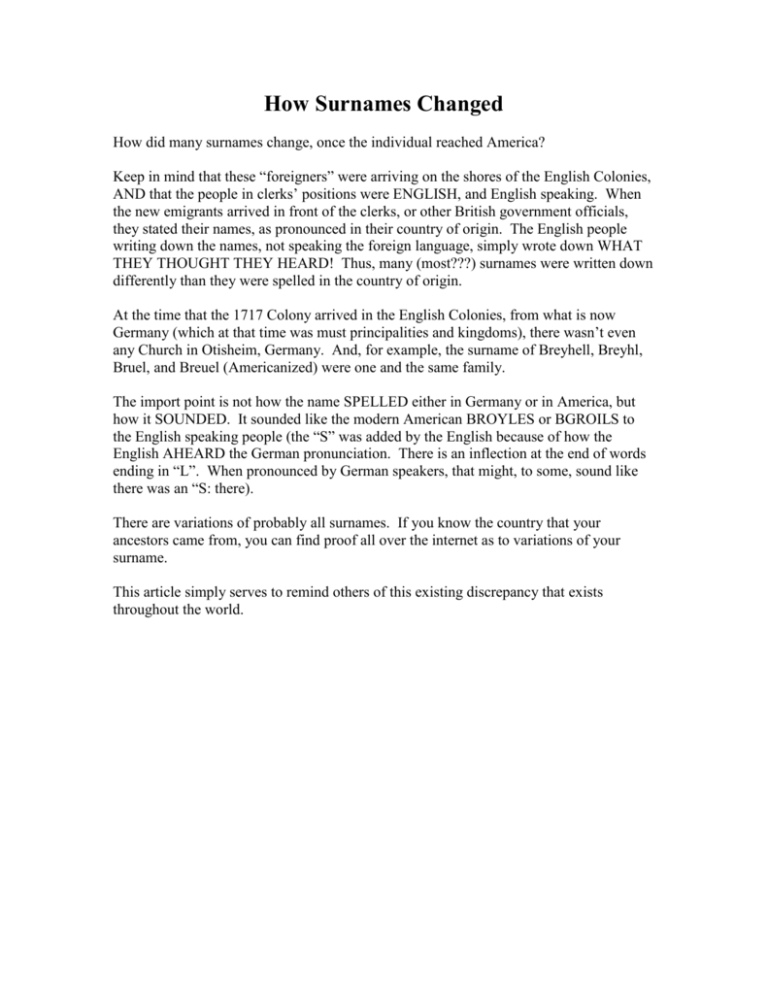
How Surnames Changed How did many surnames change, once the individual reached America? Keep in mind that these “foreigners” were arriving on the shores of the English Colonies, AND that the people in clerks’ positions were ENGLISH, and English speaking. When the new emigrants arrived in front of the clerks, or other British government officials, they stated their names, as pronounced in their country of origin. The English people writing down the names, not speaking the foreign language, simply wrote down WHAT THEY THOUGHT THEY HEARD! Thus, many (most???) surnames were written down differently than they were spelled in the country of origin. At the time that the 1717 Colony arrived in the English Colonies, from what is now Germany (which at that time was must principalities and kingdoms), there wasn’t even any Church in Otisheim, Germany. And, for example, the surname of Breyhell, Breyhl, Bruel, and Breuel (Americanized) were one and the same family. The import point is not how the name SPELLED either in Germany or in America, but how it SOUNDED. It sounded like the modern American BROYLES or BGROILS to the English speaking people (the “S” was added by the English because of how the English AHEARD the German pronunciation. There is an inflection at the end of words ending in “L”. When pronounced by German speakers, that might, to some, sound like there was an “S: there). There are variations of probably all surnames. If you know the country that your ancestors came from, you can find proof all over the internet as to variations of your surname. This article simply serves to remind others of this existing discrepancy that exists throughout the world.
